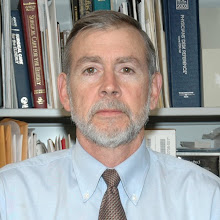This month Lynn and I reached the midpoint of our current three-year commitment representing the Franciscan Mission Service as lay missioners here in Bolivia. Among my general responses to being here, I think about some of our challenges. We are content with our work, and while the challenges we have faced are not overwhelming, knowing them makes it easier to navigate the whole environment. As in my home culture, I must sustain mission idealism through periodic doubt and frustration:
- Work interruptions such as strikes and the roadblocks to support them: Both are more common here than in the United States and seem to have more impact on society as a whole that is, the extent to which work can proceed. Such was our experience recently with the diverted traffic load on the high road to Abra.1
- Procedures in Bolivia may take more time than I think they should, such as with our recent efforts to renew visas and national identification cards at Immigration Services.2
- The sensitivity of my North American immune system to the physical environment here and the necessary adjustments I make to protect or adapt myself.3
- Social challenges we face from apparently being perceived as representatives from more affluent societies, or at the very least as easy marks.4
- The psychological stress of adjusting to the combined set of challenges.5
In each case I try specific adjustments and with varied results. With this I still try to be a problem-attacker in the hope that with some of the effort I can be a problem-solver, and I continue to rely on my personal support network of prayer and donations, family and friends back home, as well as fellow missioners and longer-tenured residents and friends here in our host country. I also think that I am very fortunate that Lynn and I are married to each other because we take time to examine what is and isn't working and why.
The difference between my mission work here versus working in the United States is that here I volunteer my labor while trying in my own way to represent Christ's compassion for all. Despite being cheap labor, I do not feel that we are thought of that way by any of those we serve. Without seeking gratitude, we experience a lot of it from the relationships we have developed at our various worksites and from our neighbors.
- Extent of personal involvement: I think it's better when we work with dedication. Sometimes, as with working at jobs in the US I feel exhausted, but yes, sometimes that too feels good, remembering that it was time spent interacting with new people, thinking at first that I understood fully but only to gain new insights in the process, generally being well received and learning the local mores, and always feeling closer to others and to a universal and eternal sense of self.
 |
| Lynn, Sr. Jaclene, and Olga after English class at LaSalette Church in Barrio Magisterio in Zona Sur, Cochabamba. |
__________
1The high road to Abra Carcel passes up and over the chain of mountains near our house, reducing the distance to the Carcel from 20k to about 3k. Of course, there are trade-offs (the high road is a rock and rubble-strewn path rather than the smooth pavement of the low road, and if the low road is blocked because of a strike, the vehicles that must continue to travelgiant buses, heavily loaded trucks may divert to the high road and create blockades of their own as they attempt to careen past each other around the tight switch-back turns. Lynn and I experienced this first hand as our taxi driver attempted to get us to Abra Carcel on time.
2Navigating Immigration Services is always challenging, with long lines and difficult to decipher explanations of what is your next step and why it may take a few more hours than you anticipated. Lynn and I try to stay silent and remain patient, maybe trying to avoid any undue attention that might prompt one of the employees to suggest that we return in several days. Feeling something like caroming pin balls, we eventually reach the end of the process and receive extended visas and renewed national ID cards: we can stay for another year and a half! Somehow it seems that volunteers should not have to labor so hard just to volunteer their time here. Yes, I know that's whimpering.
4Robbery, indignation, okay to target, suitable to be taken advantage of.
5When the amount of time spent with interruptions or disruptions exceeds the time spent toward the primary objective. I remind myself that success isn't measured in completed projects only.
6Thanks, Iggy.
